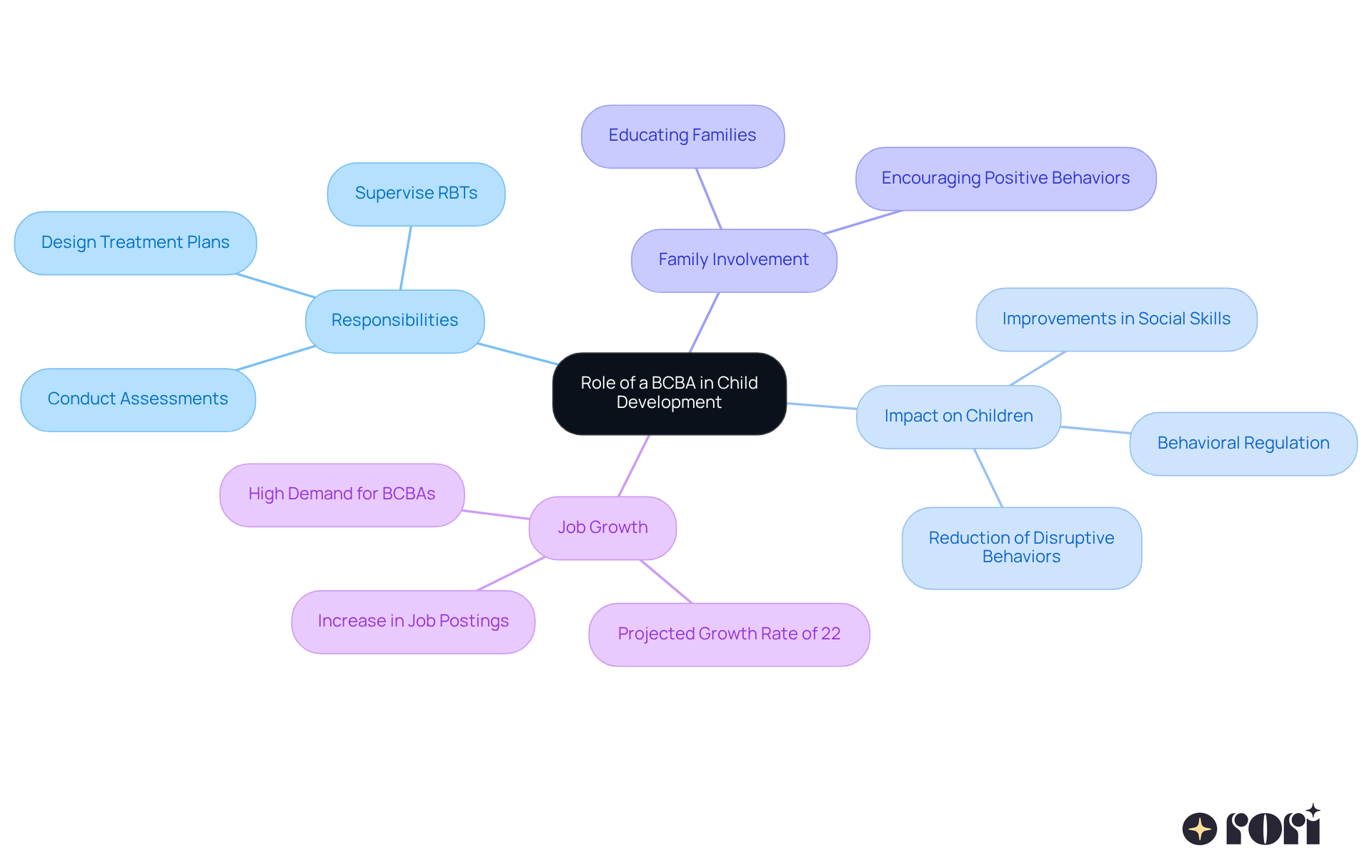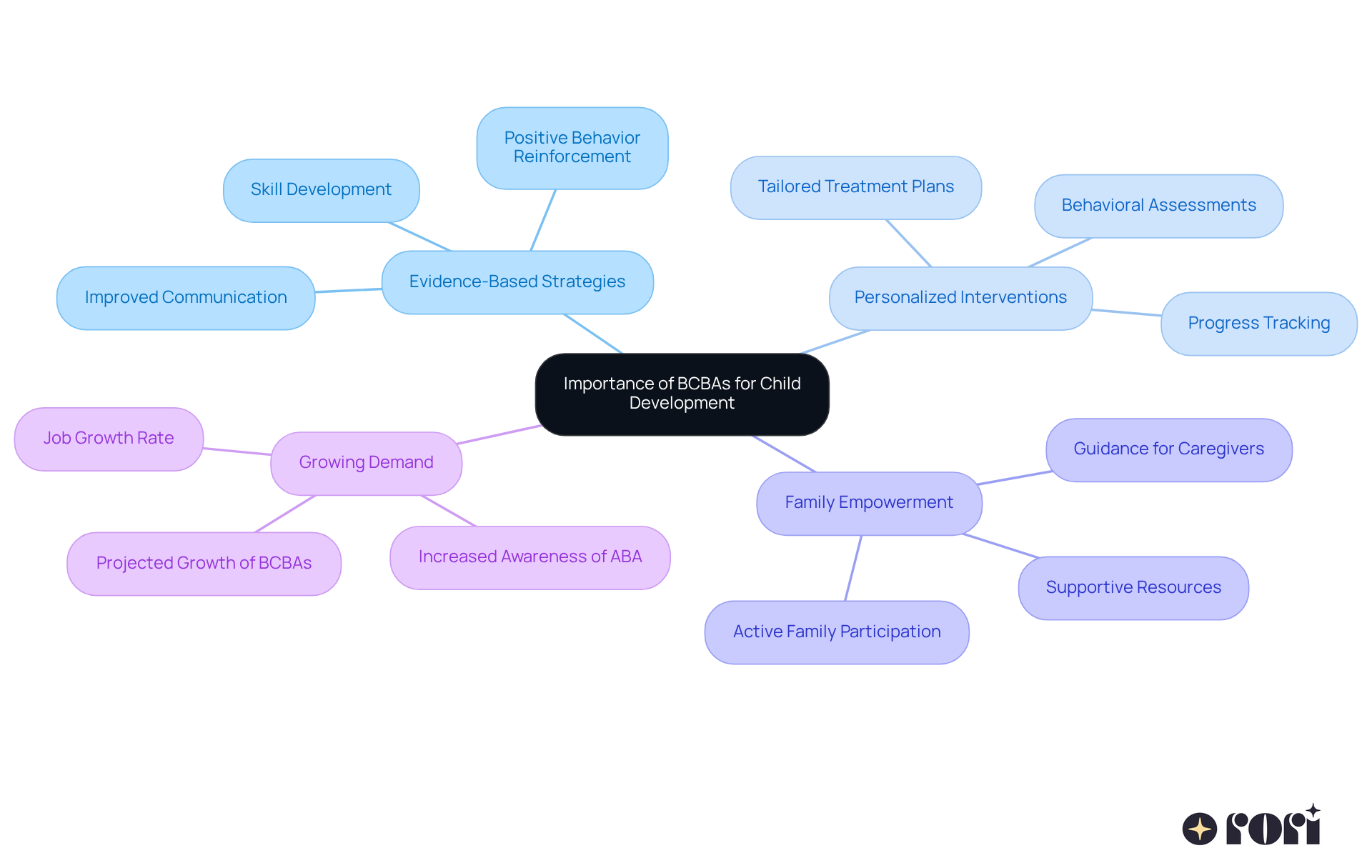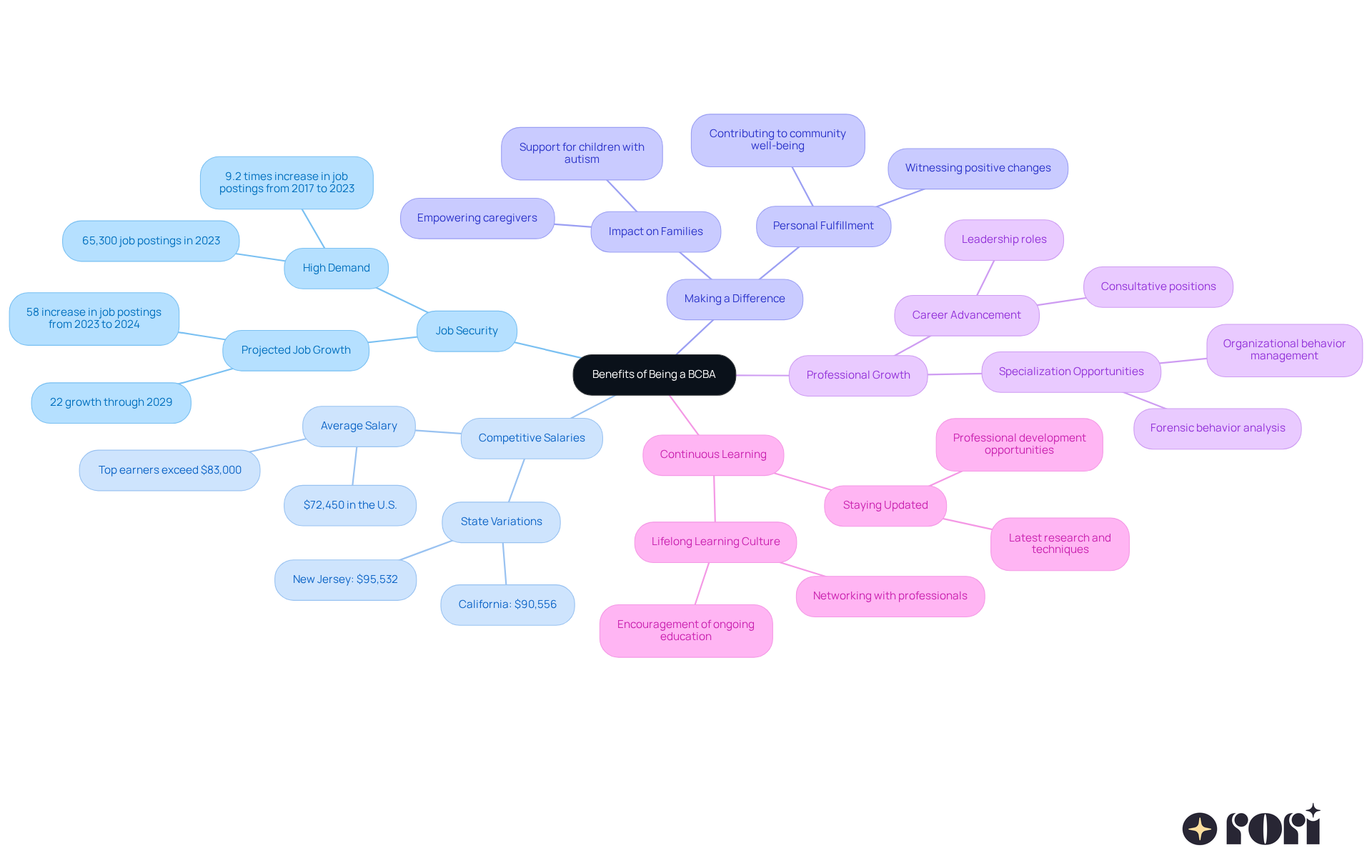Being a Board Certified Behavior Analyst (BCBA) is truly rewarding, especially when it comes to child development! BCBAs provide critical, evidence-based interventions that can significantly boost social skills and behavioral regulation in children with autism and other developmental disorders.
Imagine seeing your child thrive as they learn to navigate social situations more effectively! The article highlights inspiring case studies where children have made substantial progress in their behavior. Plus, with the increasing demand for BCBAs, there’s not only job security but also a meaningful impact on families and children’s lives.
We’re here to help you every step of the way! Let’s explore this together and discover how BCBAs can make a difference in your child’s journey.
The role of a Board Certified Behavior Analyst (BCBA) is becoming increasingly recognized as crucial in helping children grow, especially those on the autism spectrum. By using evidence-based strategies and personalized interventions, BCBAs not only boost communication and social skills but also empower families to support their children’s development effectively.
But with the rising demand for these professionals, a question often comes to mind: is pursuing a career as a BCBA really worth it? In this article, we’ll dive into the many benefits of being a BCBA. We’ll explore the professional opportunities available and the profound impact these analysts have on child development outcomes. Let’s explore this together!
A Board Certified Behavior Analyst (BCBA) is a specialized expert in analyzing behaviors, certified to design and oversee treatment plans for individuals with autism and other developmental disorders. They conduct thorough assessments to identify behavioral challenges and develop individualized treatment plans based on data-driven insights. Plus, they supervise the implementation of these plans by other professionals, like Registered Behavior Technicians (RBTs). BCBAs also play a vital role in educating and assisting families, providing them with effective methods to encourage positive behaviors in their children. This multifaceted role is essential for fostering skill development, enhancing communication, and promoting independence in individuals with autism.
The impact of BCBA interventions is truly profound! For instance, case studies show that children receiving customized ABA therapy from certified professionals experience significant improvements in social skills and behavioral regulation. One inspiring case highlighted how a BCBA's intervention led to a 50% reduction in disruptive behaviors during group activities, allowing the child to engage more fully with peers. Additionally, behavior analysts create a nurturing atmosphere that promotes parental involvement, which is crucial for a child's overall growth.
Behavior analysts often demonstrate a strong dedication to their work, emphasizing that their efforts not only change the lives of children but also uplift families. The rising demand for Board Certified Behavior Analysts, with job growth anticipated at 22% over the next decade, raises the question of whether is being a BCBA worth it, as this growth significantly surpasses the national average for other professions. As the recognition of Applied Behavior Analysis (ABA) as an effective intervention continues to grow, the role of Board Certified Analysts becomes increasingly vital in shaping positive outcomes for individuals with autism.
Let’s explore this together! We're here to help you every step of the way!

Board Certified Analysts are truly vital for the growth of youth on the autism spectrum. They utilize evidence-based strategies to tackle challenging behaviors and foster positive changes. At Rori Care, our Board Certified Behavior Analysts conduct thorough evaluations to pinpoint specific needs and tailor interventions. This ensures that young individuals receive the most effective therapies through our compassionate Applied Behavior Analysis Treatment. And guess what? This personalized approach has been shown to significantly enhance communication, social skills, and daily living activities. For instance, studies reveal that youngsters involved in early, intensive ABA therapy—typically around 25 to 40 hours weekly—often achieve remarkable developmental progress, with success rates exceeding 89%!
But that’s not all! Behavior analysts also play a crucial role in empowering parents and caregivers. They provide invaluable resources to help families effectively support their children’s development. This includes guidance on functional behavior analysis and generating automatic progress reports, which are essential for tracking progress and making informed decisions. Together, this collaborative effort not only accelerates the young person's development but also enhances family dynamics, creating a nurturing atmosphere that promotes growth. As the demand for behavior analysts continues to rise—projected to increase by over 20% in the next eight years—families navigating autism care are increasingly questioning if being a BCBA is worth it, recognizing their impact on child development. Let’s explore this together!

One might wonder, is being a BCBA worth it, as it opens up a world of opportunities in both your career and personal life? 🌟 The demand for ABA services is on the rise, especially in schools and clinics, which means job security for certified professionals is better than ever. Did you know that job listings for BCBAs skyrocketed by 9.2 times between 2017 and 2023? That’s a clear sign of a thriving market! Given this demand, one might wonder if being a BCBA is worth it, as competitive salaries range from $72,450 to over $90,000, depending on your location and specialization. For example, behavior analysts in New Jersey earn an impressive average of $95,532, while those in California can expect around $90,556.
But it’s not just about the numbers! As a behavior analyst, you have the unique opportunity to make a real difference in the lives of children and their families, which often leads to the question: is being a BCBA worth it? Imagine witnessing the positive changes that stem from your interventions—how rewarding is that? This role raises the question of whether being a BCBA is worth it, as it allows you to contribute meaningfully to individual lives while also promoting continuous professional growth. At Rori Care, our clinical leadership team is passionate about neurodiversity and empowering caregivers with ABA principles and strategies. Behavior analysts play a vital role in educating caregivers, helping them support their children’s behavioral goals through informed decision-making and data collection.
Staying updated on the latest research and techniques is essential for behavior analysts, encouraging a culture of lifelong learning. As the profession is always evolving, one might wonder, is being a BCBA worth it, especially since it allows you to explore various specializations that enhance both your expertise and career prospects. With a projected job growth rate of 22% through 2029 and a 14% increase in demand for BCBAs from 2022 to 2023, many are considering if being a BCBA is worth it 🌈 As one expert aptly put it, "The current trajectory of the BCBA profession indicates a thriving industry characterized by rapid growth, competitive salaries, and diverse career pathways." Let’s explore this together!

The role of a Board Certified Behavior Analyst (BCBA) is incredibly important in helping children grow, especially those with autism and other developmental challenges. BCBAs not only create and implement personalized treatment plans but also educate families on effective behavioral strategies. The positive changes they inspire can lead to remarkable improvements in children's social skills, communication, and independence. So, is becoming a BCBA worth it? For many, it's a question that resonates deeply.
As we look at the landscape, it’s clear that the demand for BCBAs is on the rise! Job opportunities are projected to grow significantly in the coming years. The evidence-based approach that BCBAs use has shown impressive success in enhancing children's developmental outcomes, highlighting just how vital their work is. Plus, there’s something truly fulfilling about witnessing the positive changes in children's lives—it's a rewarding aspect of this career that can't be overlooked.
Ultimately, the impact of BCBAs on child development is immense. With the increasing need for their expertise, aspiring professionals should consider the profound difference they can make for children and families. A career as a BCBA offers not just financial stability, but also the chance to contribute meaningfully to society and support the growth of future generations. Embracing this path enriches the lives of others and nurtures a culture of continuous learning and professional growth in a vibrant field.
Let’s explore this together! If you’re thinking about a career as a BCBA, we’re here to help you every step of the way!
What is the role of a BCBA in child development?
A Board Certified Behavior Analyst (BCBA) specializes in analyzing behaviors and is certified to design and oversee treatment plans for individuals with autism and other developmental disorders. They conduct assessments to identify behavioral challenges and develop individualized treatment plans based on data-driven insights.
How do BCBAs work with other professionals?
BCBAs supervise the implementation of treatment plans by other professionals, such as Registered Behavior Technicians (RBTs), ensuring that the plans are followed correctly and effectively.
What impact do BCBA interventions have on children?
Interventions by BCBAs can lead to significant improvements in social skills and behavioral regulation. For example, case studies have shown that children receiving customized ABA therapy experience a notable reduction in disruptive behaviors, allowing them to engage more fully with peers.
How do BCBAs support families?
BCBAs educate and assist families by providing effective methods to encourage positive behaviors in their children, which is crucial for the child's overall growth.
What is the job outlook for BCBAs?
The job growth for Board Certified Behavior Analysts is anticipated to be 22% over the next decade, significantly surpassing the national average for other professions.
Why is the role of BCBAs becoming more vital?
As the recognition of Applied Behavior Analysis (ABA) as an effective intervention continues to grow, the role of BCBAs becomes increasingly essential in shaping positive outcomes for individuals with autism.